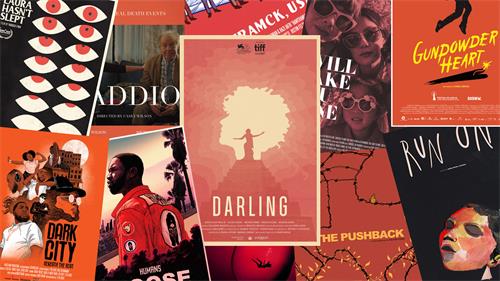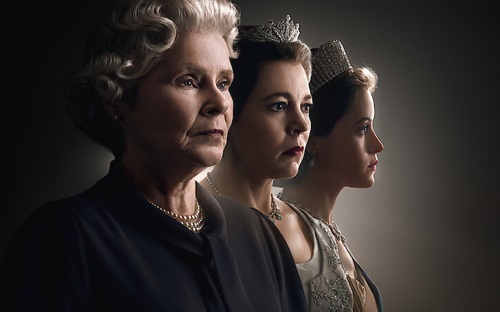
In the world of television, spin-offs are often a gamble. They aim to capitalize on the popularity of their parent shows, but the results can be unpredictable. While some spin-offs fail to capture the magic of their predecessors, others soar to new heights, earning accolades and carving out their own legacy. Here are some standout examples of TV spin-offs that not only succeeded but arguably surpassed the originals.
1. Frasier (Cheers)
When Cheers ended in 1993, fans were skeptical about whether Dr. Frasier Crane (played by Kelsey Grammer) could anchor his own show. Frasier proved them wrong. Set in Seattle, the sitcom followed Frasier's life as a radio psychiatrist, exploring his complicated family dynamics with his father Martin and brother Niles. The sharp writing, sophisticated humor, and stellar performances won Frasier 37 Emmy Awards over 11 seasons, making it one of the most acclaimed shows in television history. While Cheers was a beloved classic, Frasier elevated the character and storylines to a new level of wit and emotional depth.
2. Better Call Saul (Breaking Bad)
Few spin-offs face the pressure that Better Call Saul did when stepping into the shadow of Breaking Bad, often hailed as one of the greatest TV dramas. However, Vince Gilligan and Peter Gould crafted a prequel that stands on its own. The series explores the journey of Jimmy McGill as he evolves into the ethically ambiguous lawyer Saul Goodman, focusing on complex themes such as morality, the dynamics of family relationships, and the pursuit of personal ambition. With its meticulous storytelling and outstanding performances—especially by Bob Odenkirk and Rhea Seehorn—Better Call Saul earned critical acclaim and demonstrated that spin-offs can rival the storytelling of their originals.
3. The Simpsons (The Tracey Ullman Show)
It’s hard to believe that the longest-running animated series in history began as a series of shorts on The Tracey Ullman Show. Created by Matt Groening, The Simpsons debuted as a standalone series in 1989 and quickly became a cultural phenomenon. Its satirical take on family life and society has influenced countless shows and remains a cornerstone of American pop culture. While The Tracey Ullman Show was well-regarded, it’s The Simpsons that achieved unparalleled success, proving that even minor spin-offs can outshine their origins.
4. Angel (Buffy the Vampire Slayer)
Buffy the Vampire Slayer was a groundbreaking series that mixed supernatural drama with teenage angst. When Angel, Buffy’s brooding vampire boyfriend, left Sunnydale for Los Angeles, his spin-off Angel took a darker, more mature tone. The show tackled themes of redemption and morality, focusing on Angel’s quest to atone for his past sins. With a compelling ensemble cast and intricate storytelling, Angel carved out its identity, earning a loyal fanbase that continues to celebrate its legacy alongside Buffy.
5. Star Trek: The Next Generation (Star Trek: The Original Series)
Gene Roddenberry’s Star Trek: The Original Series was revolutionary for its time, but it struggled with ratings and ended after three seasons. Two decades later, Star Trek: The Next Generation (TNG) debuted, proving that the franchise could thrive with a new cast and updated vision. Featuring Captain Jean-Luc Picard (played by Patrick Stewart) and an ensemble crew aboard the USS Enterprise, TNG explored complex moral dilemmas, social issues, and epic space adventures. Its seven-season run solidified Star Trek as a cultural touchstone, arguably surpassing the original in scope and impact.
6. The Jeffersons (All in the Family)
Spun off from All in the Family, The Jeffersons focused on George and Louise Jefferson, an African-American couple who "moved on up" to a deluxe apartment in Manhattan. The show’s humor, sharp social commentary, and representation of African-American success made it a landmark series. Running for 11 seasons, The Jeffersons became one of the longest-running sitcoms in history and outshone its predecessor in terms of cultural significance and longevity.
7. NCIS (JAG)
Many viewers might not realize that NCIS, one of television’s most enduring procedural dramas, was a spin-off of JAG. Centered on a team of naval criminal investigators led by Leroy Jethro Gibbs (played by Mark Harmon), NCIS struck a perfect balance of compelling characters, intriguing cases, and humor. With multiple spin-offs of its own, including NCIS: Los Angeles and NCIS: New Orleans, the franchise has become a juggernaut, far eclipsing the success of JAG.
8. Law & Order: Special Victims Unit (Law & Order)
While the original Law & Order pioneered the "ripped from the headlines" storytelling format, Law & Order: Special Victims Unit (SVU) brought a fresh focus to cases involving sexual crimes and abuse. With Mariska Hargitay’s iconic portrayal of Olivia Benson, SVU delves into emotionally charged storylines with depth and sensitivity. Now the longest-running primetime live-action series in American TV history, SVU has left an indelible mark, arguably overshadowing its predecessor.
9. Fargo (Fargo Film)
Though technically a spin-off from the 1996 Coen Brothers film, the Fargo TV series reimagined the darkly comedic crime anthology with new characters and storylines. Showrunner Noah Hawley’s adaptation preserved the quirky charm and suspense of the original while expanding its universe. Each season stands as a unique story, with standout performances and intricate plots that have earned the series critical acclaim, proving that a spin-off can elevate its source material to new artistic heights.
10. Boston Legal (The Practice)
When The Practice introduced the eccentric attorney Alan Shore (played by James Spader), audiences were captivated. His spin-off, Boston Legal, leaned into the character’s sharp wit and moral ambiguity, creating a legal drama that was both humorous and thought-provoking. With standout performances by Spader and William Shatner, Boston Legal earned a devoted following and critical praise, surpassing The Practice in terms of impact and popularity.
The Secret Sauce of Successful Spin-Offs
Compelling Characters: Successful spin-offs often revolve around characters who already resonate deeply with audiences, such as Frasier Crane or Saul Goodman.
Independent Identity: A great spin-off builds on its predecessor but establishes its own voice and themes, like Angel or Better Call Saul.
Strong Creative Vision: Talented showrunners and writers who understand the source material—and how to expand it—are critical to a spin-off’s success.
Conclusion
TV spin-offs are a testament to the power of storytelling. They take familiar worlds and characters, breathing new life into them while daring to innovate. As the examples above demonstrate, a well-executed spin-off can transcend its origins and stand as a masterpiece in its own right.





